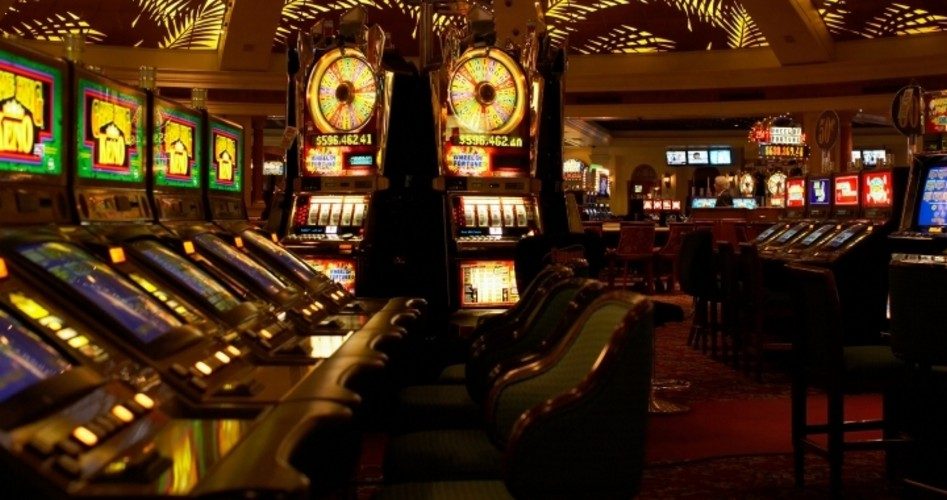
The Supreme Court on Friday denied a Nevada church’s request for an injunction against Governor Steve Sisolak’s (D) executive order restricting church services to just 50 people while allowing casinos, bowling alleys, and other profit-making establishments to admit up to half their legal capacity of patrons.
Chief Justice John Roberts joined the court’s liberal justices in turning down the request from Calvary Chapel of Dayton, Nevada, to enjoin the enforcement of the order while the church’s lawsuit against it is pending. The majority did not explain its reasoning.
However, the dissenters — Justices Samuel Alito, Clarence Thomas, Brett Kavanaugh, and Neil Gorsuch — produced a combined 24 pages of strong arguments for why they would have granted the injunction. They believe the church stands a good chance of prevailing in court given the order’s clear bias against religion and certain types of expression, both of which are protected by the First Amendment.
In his dissent, which was joined by Thomas and Kavanaugh, Alito observed:
The Constitution guarantees the free exercise of religion. It says nothing about the freedom to play craps or blackjack, to feed tokens into a slot machine, or to engage in any other game of chance. But the Governor of Nevada apparently has different priorities. Claiming virtually unbounded power to restrict constitutional rights during the COVID-19 pandemic, he has issued a directive that severely limits attendance at religious services….
That Nevada would discriminate in favor of the powerful gaming industry and its employees may not come as a surprise, but this Court’s willingness to allow such discrimination is disappointing. We have a duty to defend the Constitution, and even a public health emergency does not absolve us of that responsibility.
Alito noted that the activities in casinos “frequently involve far less physical distancing and other safety measures than the worship services that Calvary Chapel proposes to conduct.” Those services would seat up to half the church’s capacity, be brief, and require masks and social distancing, among other things. Meanwhile, casino patrons are likely to hop from one game to another within a casino and from one casino to another within a day, often coming into close contact with strangers and removing their masks at least to eat or drink. “The idea that allowing Calvary Chapel to admit 90 worshippers presents a greater public health risk than allowing casinos to operate at 50% is hard to swallow,” Alito wrote, “and the State’s efforts to justify the discrimination are feeble.”
Alito also argued that Sisolak’s edict violates the church’s right to freedom of expression because “the Governor has favored certain speakers over others,” specifically by supporting and participating in Black Lives Matter protests that violated his order while preventing some religious believers from worshiping.
In addition to joining Alito’s dissent, Kavanaugh presented some of his own reasoning. “COVID–19,” he declared, “is not a blank check for a State to discriminate against religious people, religious organizations, and religious services.” Moreover, “Nevada’s COVID-19-based health distinction between (i) bars, casinos, and gyms on the one hand, and (ii) religious services on the other hand, defies common sense.”
Kavanaugh particularly chastised Sisolak for prioritizing profits over people, the very thing Democrats claim to oppose. “Nevada’s rules reflect an implicit judgment that for-profit assemblies are important and religious gatherings are less so; that moneymaking is more important than faith during the pandemic,” he penned. “The Constitution,” he explained, “does not tolerate discrimination against religion merely because religious services do not yield a profit.”
The last word goes to Gorsuch, whose one-paragraph dissent summed the case up nicely:
This is a simple case. Under the Governor’s edict, a 10-screen “multiplex” may host 500 moviegoers at any time. A casino, too, may cater to hundreds at once, with perhaps six people huddled at each craps table here and a similar number gathered around every roulette wheel there. Large numbers and close quarters are fine in such places. But churches, synagogues, and mosques are banned from admitting more than 50 worshippers — no matter how large the building, how distant the individuals, how many wear face masks, no matter the precautions at all. In Nevada, it seems, it is better to be in entertainment than religion. Maybe that is nothing new. But the First Amendment prohibits such obvious discrimination against the exercise of religion. The world we inhabit today, with a pandemic upon us, poses unusual challenges. But there is no world in which the Constitution permits Nevada to favor Caesars Palace over Calvary Chapel.
Image: Erik Snyder/iStock/Getty Images Plus
Michael Tennant is a freelance writer and regular contributor to The New American.



